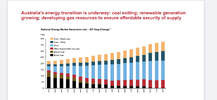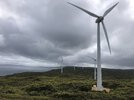Value Collector
Have courage, and be kind.
- Joined
- 13 January 2014
- Posts
- 12,237
- Reactions
- 8,484
I think economically it’s better to stay on the grid, the huge extra cost involved in doubling your battery and generation capacity along with the loss of the ability to sell excess production far out weighs the $1 per day cost of maintaining a grid connection.One of the things I have noticed is how quickly the solar output levels deterirates on overcast days, and we haven't even hit winter yet.
If I was going full off grid, I would probably want to double everything I have in terms of panels and battery, especially if you plan to to charge an EV at home.Our system is more than adequate to cover the usage of between 11 to 20 KW a day, but vringing in an EV that may take 40 or more KWhrs to charge is a whole new ball game.
Mick
Even if your goal is to become energy independent, and you wanted to double your capacity, that would cause you to have a lot of excess production on sunny days, the ability to sell that would be worth more than $1 per day.
Also, I believe you are from Victoria, you guys often generate loads of wind power at night, I wouldn’t be surprised if eventually you get really good deals for night time charging down there.








